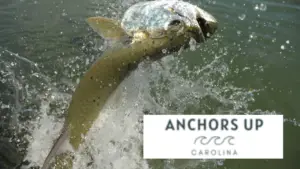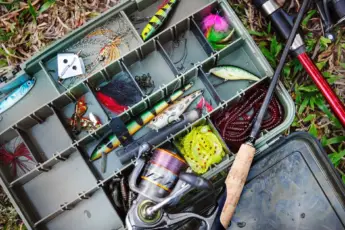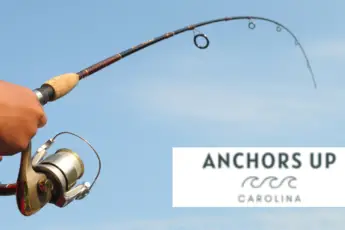One of the most highly sought after inshore and nearshore gamefish is the tarpon. Tarpon are known not only for their shiny armored scales but for spectacular leaps when hooked. I have had the opportunity to catch a multitude of tarpon and can assure you that they are worth targeting for sport. However, can you eat tarpon? The answer to this question is highly dependent on where you are fishing and your taste buds.
Navigating Tarpon Fishing Regulations
In order for you to be able to eat a tarpon, it means that you must be legally allowed to kill a tarpon.
Without question, tarpon regulations are in place to protect the species from overfishing. To put it bluntly, tarpon fishing is a source of revenue for coastal states, including North Carolina, South Carolina, Georgia, and Florida. Anglers flock to these states to target tarpon, otherwise called silver kings.
As a result of the desire by anglers to catch tarpon, it drives revenue. Traveling anglers book hotels, schedule charters, shop in grocery stores, and dine in restaurants. All of this equates to a significant amount of tax money on an annual basis.
The regulations are designed to keep tarpon populations strong. Strong tarpon populations equate to consistent tax money year after year.
Tarpon Regulations
It is essential to understand tarpon regulations before casting a line, especially if you’re fishing without a guide. Importantly, the rules vary on a state by state basis.
Without a doubt, it is illegal to harvest a tarpon caught in the states of North Carolina and Florida. With that being said, you will not be able to kill, fillet, and cook a tarpon.
However, the tarpon laws are more lenient in South Carolina and Georgia. Specifically, in South Carolina, the fish must measure at a minimum of 77 inches in length. Additionally, the fish must be caught by rod and reel. Comparatively, Georgia requires the tarpon to measure at a minimum 68 inches to the fork of the tail.
So, if you plan to kill and eat a tarpon, you have a couple of options when it comes to southeastern states. I suggest planning your tarpon fishing adventure in South Carolina or Georgia.
Challenges Of Hooking And Landing A Tarpon
Beyond fishing in a state that legally allows harvesting a tarpon is the challenge of hooking and landing a tarpon.
Unquestionably, catching a tarpon is incredibly challenging. For one, making a solid hook set is not a simple task. Tarpon strikes are often in combination with a jump. For this reason, the hook goes flying compared to becoming set in the mouth.
The second challenge is landing the fish. Tarpon are notorious for repeated leaps and shakes. More times than not, the hook will come free, causing you to lose the fish.
Lastly, you’re not talking about a small fish based on the size requirements in Georgia and South Carolina. These fish are powerful, and without the proper drag setting, the line snaps.
So Can You Eat Tarpon?
The simple answer to Can you eat tarpon is a yes if it is caught in South Carolina or Georgia. Trust me, you’re not going to visit a local fish market and find tarpon fillets lying on ice.
Tarpon Taste And Texture
Look, you can eat tarpon, but I do not recommend it. When it comes to the taste and texture, it is less than appealing.
First, tarpon fillets have an unpleasant scent. No question about it when you’re filleting and preparing the flesh, the smell will be less than appealing.
Comparably, the taste of the cooked fillets matches the smell. I personally don’t want to bite into something that tastes equal to its smell if it’s a bad smell, that is. In order to eat tarpon, I recommend adding strong flavored seasonings and grilling or broiling to improve the taste.
However, the texture of the fish is highly appealing. Cuts of tarpon are noted as being flakey and white in color. Fortunately, there is one positive to cooking and eating tarpon fillets.
Can You Eat Tarpon? Yes But I Wouldn’t
My personal recommendation would be to practice catch and release when it comes to tarpon fishing. Tarpon are incredible fighters, and that is what they should be left to do. There is no sense in catching and killing a tarpon for its less than desirable fillets. Plenty of other good tasting fish are in the same areas, including redfish, sea trout, snook, and more. You ll understand the first time you connect with the silver king.






